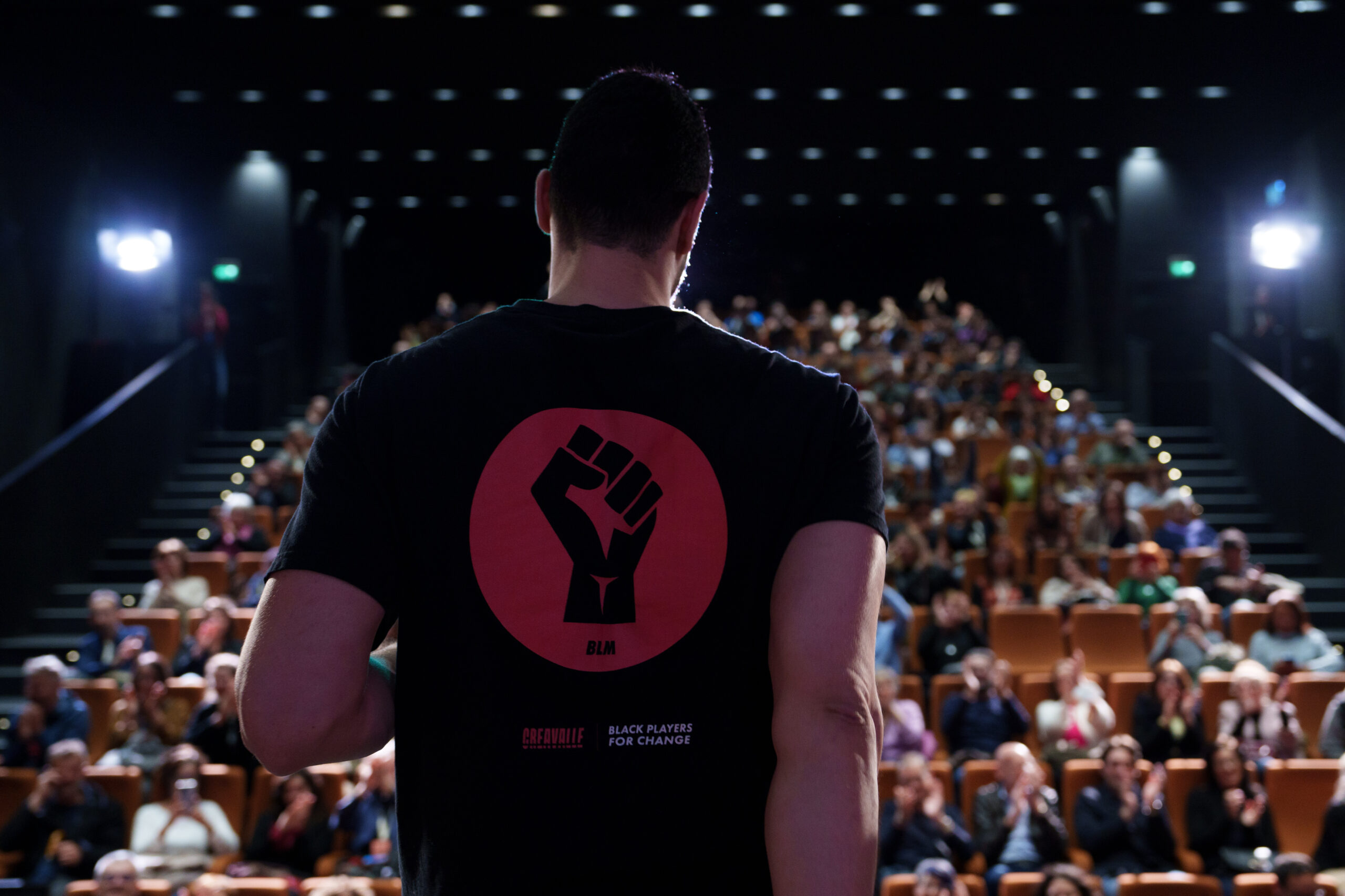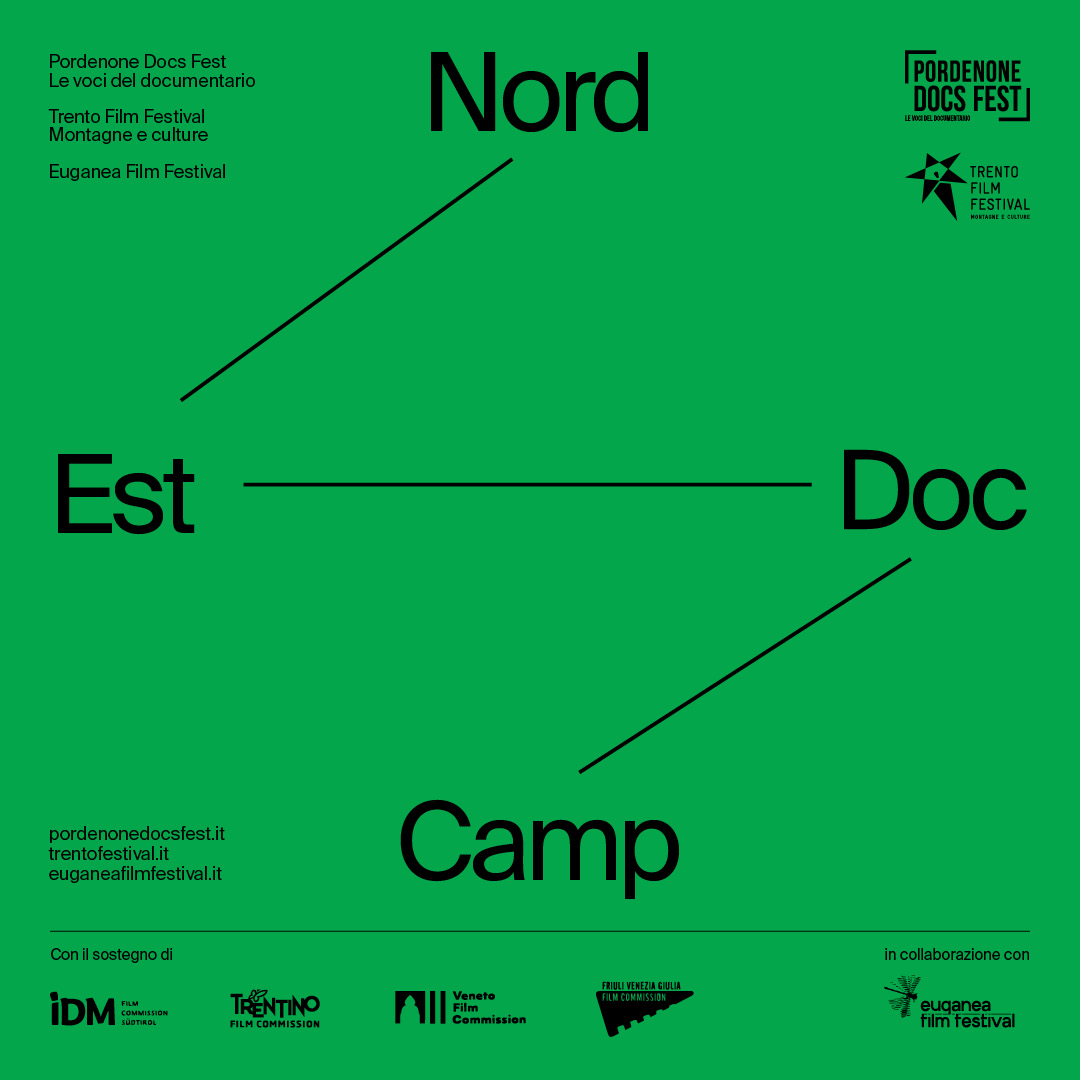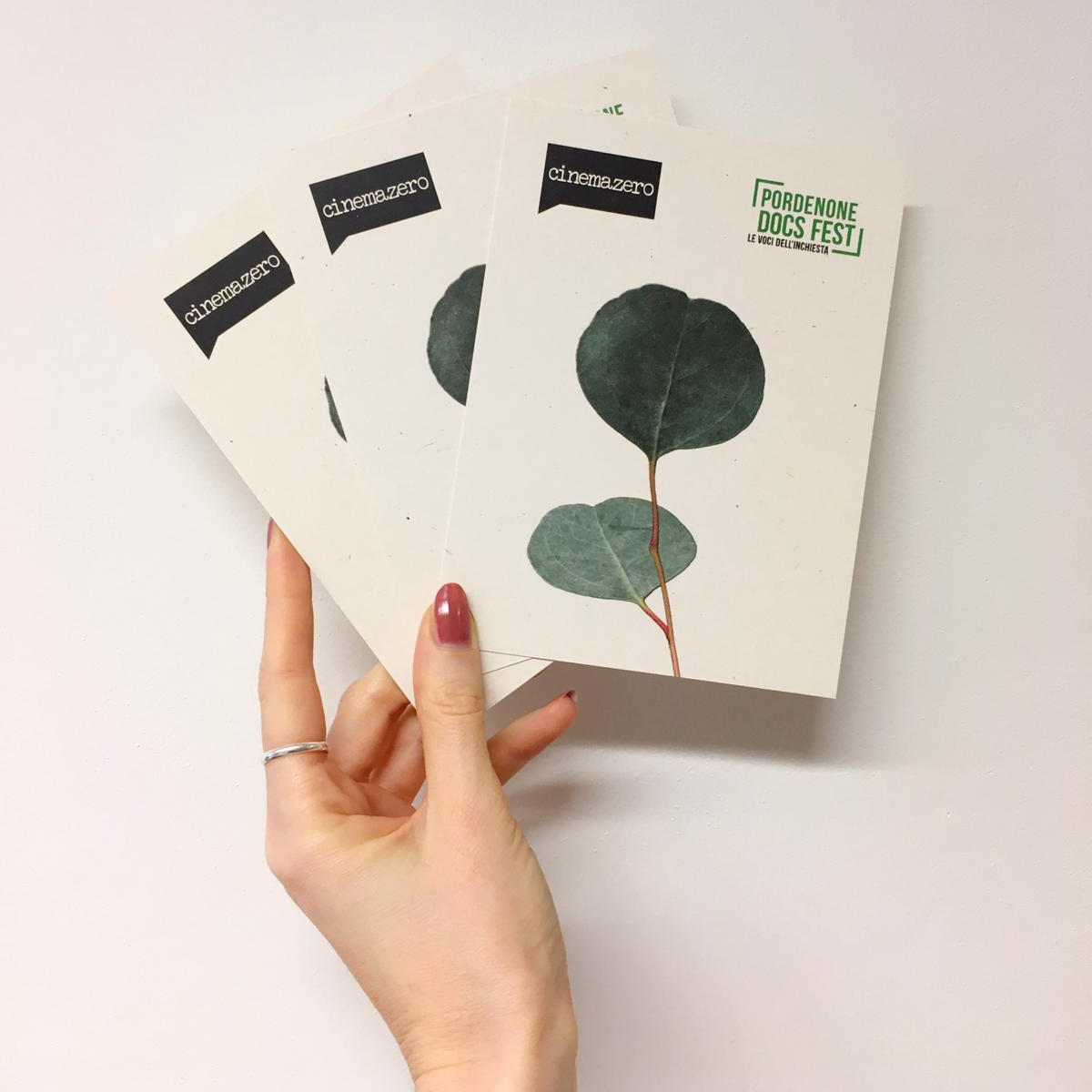Pordenone Docs Fest and Cinemazero have been consistently adopting actions aimed at environmental and social sustainability for years.
AFIC (Italian Association of Film Festivals) has developed the Green Festival Guidelines, which draw inspiration from and include some of these good practices, offering inspiration to improve and expand them further.
The national guidelines, in synergy with the recommendations being developed by Europa Cinemas at the European level, provide an opportunity to compile and highlight all these actions in a single document, opening the festival to broader discussions with other cultural entities operating in Italy and internationally.
In 2023, the festival measured its CO₂ equivalent emissions with the technical support of ARPA FVG, with which it has long been conducting environmental education initiatives.
The commitment continues in 2024, updating goals and actions, with the addition of a new focus on digital ecology.
1. SUSTAINABLE MOBILITY
We raise awareness among the staff, guests, and audience about the festival’s intent to promote sustainable mobility for the event’s organization and enjoyment.
The center of Pordenone is an excellent example of a “15-minute city,” where festival staff, guests, and attendees can often cover even shorter distances on foot or by bicycle. This year, due to the construction of a new pavilion in Piazza Maestri del Lavoro, reaching the cinema sustainably will also be a more practical option, avoiding the need to search for parking.
To encourage attendees to arrive in Pordenone via public transport and then move around the city on foot or by bike, those arriving by train or bus will be entitled to a discount on the festival pass (via the “green pass” option).
To support sustainable mobility, especially for those unfamiliar with the city, we provide a map on the website and to our guests showing festival venues, bike-sharing points, and charging stations for electric vehicles. For those who have no choice but to drive, preferably using carpooling, we highlight the most convenient parking options.
On the festival website, we also provide detailed information about how to reach Pordenone by train or bus.
2. SUSTAINABLE ENERGY CONSUMPTION
AFIC’s general recommendation is to use electricity generated from renewable sources, prioritize sustainable energy providers, and implement all possible measures to reduce energy consumption.
To reduce its energy impact, Cinemazero has installed solar panels capable of generating 21,617.6 kWh annually.
Throughout the year, Cinemazero staff adopt energy-saving behaviors, such as:
- Turning off and unplugging all electrical and electronic equipment (including computers, tablets, and smartphones) during non-working hours.
- Avoiding the use of networks, connections, and phones unless strictly necessary.
- Minimizing artificial lighting and ensuring lights are switched off when not needed.
- Setting heating and cooling systems to seasonally appropriate temperatures: no higher than 20°C in winter and no more than 6°C below outdoor temperatures in summer, with systems turned off when spaces are unoccupied.
The festival avoids the use of outdoor heaters and radiant devices.
Traditional cinema lighting has been replaced with state-of-the-art LED fixtures to further reduce energy consumption.
In 2023, Cinemazero implemented energy-efficiency upgrades—financed through the National Recovery and Resilience Plan (PNRR)—making the structure more modern and sustainable, both environmentally and economically. These include replacing thermal power plants with new systems featuring heat exchangers, installing an Air Treatment Unit (UTA) with heat recovery and modern sensors, and replacing the DCP projector in SalaGrande with a laser model, reducing energy consumption by over 50%.
For the XVI edition of the Pordenone Docs Fest, its carbon footprint was calculated with the technical support of ARPA FVG, amounting to 49.6 tons of CO₂ equivalent. The largest contribution came from transportation (41.4 tons). For the XVII edition, the festival aims to compensate emissions by investing in urban green spaces, potentially creating the “Cinemazero forest.” Any excess emissions will be compensated after the event.
3. PRINT MATERIALS
Promotional materials, for both the festival and Cinemazero year-round, use E.C.F. pure cellulose natural paper—FSC certified and sourced from recycled fibers.
Staff are encouraged to minimize printing, preferring digital formats and ensuring double-sided printing when necessary.
Printed materials are distributed strategically and in targeted locations, with some resources only made available in digital formats to avoid waste.
Audiences are encouraged to purchase tickets online, with clear indications in printed programs, on the website, via newsletters, and on social media.
4. EVENT SETUP
Event setups prioritize renewable, recycled, and recyclable materials, avoiding references to specific editions to allow reuse in the future.
Decorations exclusively feature potted plants.
5. WASTE MANAGEMENT
Cinemazero manages waste following a differentiated collection system year-round. During the festival, efforts intensify to minimize waste production.
Plastic use is avoided, and attendees are encouraged to use refillable bottles and jugs of water at events.
6. GADGET PRODUCTION
Prizes for winners are made of wood.
Gadgets are crafted from reclaimed materials, such as bags made by the Nuovi Vicini social tailoring workshop using fabric scraps.
7. HOSPITALITY
Guests are encouraged to opt for eco-friendly travel options, prioritizing train over air travel when possible. For local transport, the festival rents electric vehicles and promotes shared transportation.
8. FOOD SUSTAINABILITY
The festival promotes low-impact food choices, such as seasonal, vegetarian, or vegan options. Waste is minimized at catered events.
9. ENVIRONMENTAL AWARENESS & SOCIAL SUSTAINABILITY
Films addressing environmental issues are showcased, and the Green Documentary Award highlights ecological themes. Cinemazero emphasizes local suppliers and inclusive practices for all events.
10. TRAINING & COMMUNICATION
Transparent communication about the festival’s sustainability efforts is a priority, accompanied by environmental training for staff.
+1. DIGITAL SUSTAINABILITY
Actions are taken to reduce digital footprints, such as minimizing unnecessary data storage and streaming efficiently.


